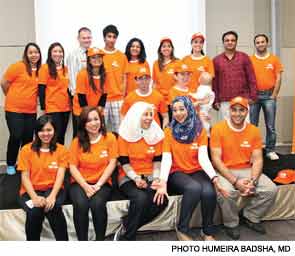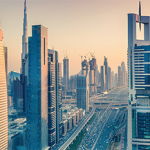

I planned to stay for only two years. Almost nine years later, I am still practicing rheumatology in Dubai, the United Arab Emirates (UAE). Why did I stay so long? Part of the answer lies in the hopeful look of a recent patient, Abdullah.
Abdullah’s Story
He is 16, like my teenage son. Unlike my son, Abdullah recently escaped horrific conditions in war-torn Damascus, Syria. When I met him, he had not been able to find methotrexate to treat his juvenile arthritis for six months and been unable to locate his rheumatologist for almost a year. Against all odds, his brother managed to get Abdullah a visa so he could visit him in the UAE. They drove two hours just to see me. He had fixed flexion contractures of his fingers, and all of his large joints were swollen, tender and barely moving. The erythrocyte sedimentation rate was 100 mm/hr.
I am saddened this boy does not have to deal with just the usual teenage angst of acne, which parties to attend or which girls to talk to. We started him back on methotrexate and steroids, but this regimen was insufficient, and his family could not afford the cost of biological drugs. Time was running out; his visitor’s visa was valid for just one month.
In 2007, we had founded the Emirates Arthritis Foundation (EAF) to help patients who cannot afford their treatment. This support allowed us to start Abdullah on anti-TNF therapy. Fortunately, he was granted a visa extension on medical grounds. After seven weeks of treatment, his arthritis remitted, and Abdullah experienced a growth spurt of a few inches. The hopeful look in his face turned to one of quiet joy.
When I am bogged down by the mundane, the endless paperwork, the hassles of dealing with health insurance rejections, the patient complaints and the overbooked schedule, I think of the EAF, and how it has made such a difference in the lives of many.
A Study in Contrasts
Dubai surprised me. I thought I was leaving the Boston suburbs to work in an oil-rich Gulf State and would be taking care of wealthy, pampered patients. Instead, I found a city with very little oil reserves that had the breathtaking audacity to want to be like New York, London or Paris. Buildings, financial service institutions, hotels and hospitals were being constructed at a crazy pace. However, the nascent healthcare sector still faced considerable challenges. The private healthcare sector was now being told to assume responsibility for the city’s predominantly expat population, a task that was previously performed by the government. My challenges lay in taking care of patients who could not afford the coverage. Dealing with an illness is one problem, but for a noncitizen resident of the UAE, being diagnosed with a chronic disease almost certainly meant the loss of their job and repatriation to their home country.
